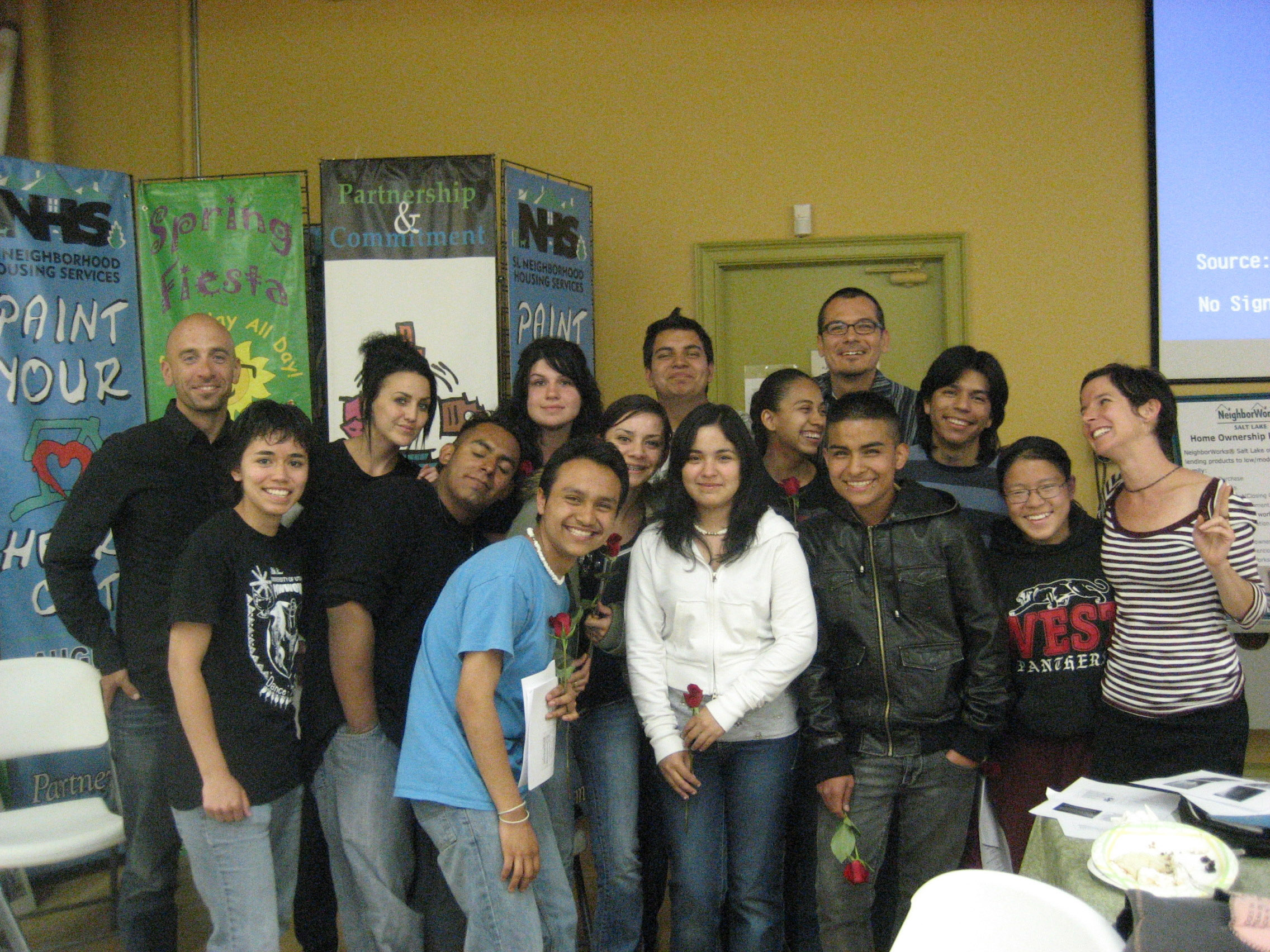
Nov. 13, 2008 – “What is keeping undocumented students from continuing their education after high school? What comes to mind when you think of the word ‘immigrant’? How do you define ‘stereotype’?” These questions guided the research projects of 20 high school students participating in the Mestizo Arts and Activism project — an interdisciplinary program integrating community based arts, research, education and change.
On Wednesday, Nov. 19, the Mestizo Arts and Activism youth research team, along with University of Utah student researchers and Dr. Matt Bradley, Dr. Caitlin Cahill and Dr. David Quijada will present their community-based research projects at the Mestizo Coffeehouse (631 W North Temple). The event will take place from 4-6 p.m. and is free and open to the public.
The Mestizo Arts and Activism project is directed by the recipients of the ’07-’08 Bennion Center Public Service Professorship: Dr. Matt Bradley of the Honors College; Dr. Caitlin Cahill of the city and metropolitan planning departments; and Dr. David Quijada of the education, culture and society and ethnic studies programs.
“The Mestizo Arts and Activism program provides an opportunity for us to listen to young people whose voices are all too often missing, ignored, or excluded from those decisions that affect them,” says Cahill. “Here we work collectively with young people to act upon their concerns and create community change.”
The Mestizo Arts and Activism project’s goal is to support the development of young people growing up on the west side of Salt Lake City as catalysts of change through leadership and active civic engagement. The project draws upon the assets of the diverse communities of the west side, engaging the resources of community partners including the Mestizo Institute for Culture and Arts (MICA) and the West Side Leadership Institute of University Neighborhood Partners (UNP) and NeighborWorks Salt Lake (NWS).
This year, 20 high school students from the west side are participating in the program. As part of the program, the youth participants develop action research projects based on their own concerns.
In Spring 2008, research teams investigated issues of access to higher education for undocumented students, stereotypes and immigration, and stereotyping and discrimination on the west side. In this process, young people are re-positioned as co-researchers as they frame the questions to be investigated, document and analyze conditions in their local areas, identify priority issues affecting young people and develop and implement action plans to affect change in their community.
The 2008-2009 program is supported by the UNP Community Scholar in Residence Award, the department of city and metropolitan planning and the Marriner Eccles Foundation.
